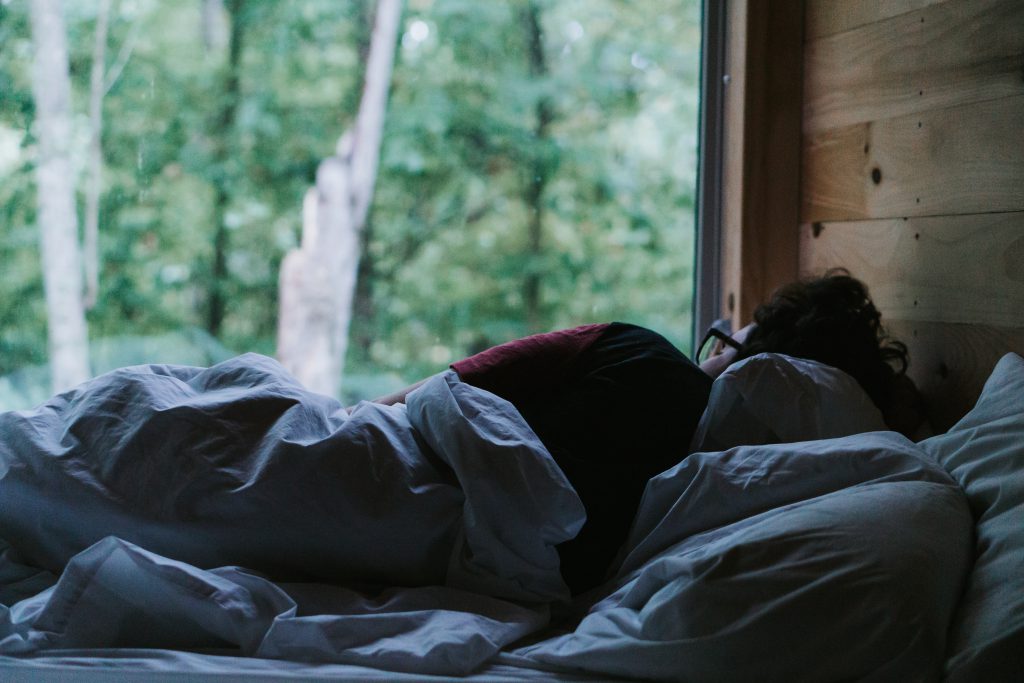Chronotype Test: Understand & Sleep Better

Content
Are you someone who loves waking early or do you like to sleep in? This seemingly unimportant question is actually fundamental. Whether we are a morning person or a night owl changes the way we relate to our daily activities and to our sleep. Let’s discover together what a chronotype is, how you can determine what your chronotype is and how to adjust your daily schedule to better enjoy your days and finally sleep like a baby!

What is a chronotype?
Simply put, your chronotype is what describes your ability to be active and productive either in the morning, afternoon or in the evening. It’s your biological characteristic that makes you say “I’m not a morning person” if this is the case for you. Of course, this is not the only information that our chronotype contains. It tells us about your ideal wake-up and bedtime, about your appetite at different times throughout the day, about your ideal time to work to have a maximum amount of concentration, and much more. It is, in some way, your internal personal clock.
Our chronotype is not only determined by our biological make-up. It is also influenced by genetic, psychological, and environmental factors. That does mean that our lifestyle impacts our chronotype, although it does stay pretty stable throughout our lives. Of course, it can evolve in time: A lot of people have a tendency to wake up earlier as they get older. However, this evolution is very gradual, we don’t radically change chronotype. It goes without saying that it’s better to try and organize our lives around it to better enjoy our days rather than to suffer through them! If you have trouble sleeping, I would advise you to do your research: This might just be the tool you need to adjust your daily routine and enjoy better sleep.

Dr. Michael Breus, American clinical psychologist known in the United States as the “sleep doctor”, specializes in chronobiology, which is the studies of organisms biological rhythms. After doing advanced research he has come up with a questionnaire that allows everyone to determine their own chronotype.

To be a morning person or a night owl | Learning about ourselves
It turns out it’s not a legend: Some of us are morning people, some of us are night owls. Some of us are more adaptable and our chronotype is not as black and white but we still have some characteristics that determine what is better for us to feel good throughout the day. In any case, knowing your chronotype allows you to know yourself better, but also to break down the myth that “The early morning has gold in its mouth.” I have to admit that this sentence is frustrating to people who, like me, don’t enjoy waking up at the crack of dawn. To be totally honest, when I open my eyes in the early morning, my first thoughts are that there is not enough gold in the world to make me want to get up! All joking apart, knowing your biological rhythm gives us the power to be efficient exactly at the time when it’s easiest for us. This helps us understand that productivity is not only a question of willpower or motivation, but it also depends on our internal clock, which is totally different from one person to the next.
Our chronotype confirms once more that we are all different. Even if there are broad categories of chronotypes, – Dr. Breus categorizes all 4 chronotypes under animal names, to help us better figure out what mammal we might relate with the most – people with the same chronotype are clearly not exactly the same. If, after taking the test you find out that you are a morning person (or a lion, according to Dr. Breus) it’s totally possible that you are used to getting up later than the psychologist suggests, but that you can relate with the description of the lion. These categories are only there to help us understand ourselves better and to try and adjust our daily schedule to match our internal clock.

Respect your own biological rhythm
Our daily obligations force us to often act in the opposite way that our biological nature would require. If a part of the population (about 15 to 20%) are naturally early risers, the others struggle to face head-on what is expected of them during the first hours of the day. Luckily, there are ways to compensate for that gap between what our bodies need and what our daily life requires. Here are some of the reasons why it’s so important to respect your own biological rhythm:
For better sleep!
Indeed, by being aware of your chronotype, you can act in a way that allows you to promote your sleep. If you are one of those people who have trouble sleeping, you will find some helpful advice depending on your chronotype when taking the test at the end of this article.
For more efficient work.
It’s obvious that when we know whether we are early risers or night owls it’s easier to decide which hours during the day our brain can be more productive. For people who are unable to change their work hours, it might be a possibility to adjust the time at which certain tasks can be achieved. For those who don’t feel really productive until 3 or 4pm (because, yes, there is a category for us, too!) it might be beneficial to work on easier tasks in the morning and take on tasks that require more concentration in the afternoon, for example.
For healthier eating.
Here again, we do not have the same rhythm. Some people are not hungry as soon as they wake up, and there is nothing wrong with that! We need to learn to listen to our body’s needs at different times throughout the day.
You understand now that knowing your chronotype is learning to find a balance by listening to our own internal clock. It’s now time for you to discover your chronotype by taking Dr. Breus’ test. Click here and come back to let us know what you found out: So? What mammal are you?
Translator: Stella Debiaggi

